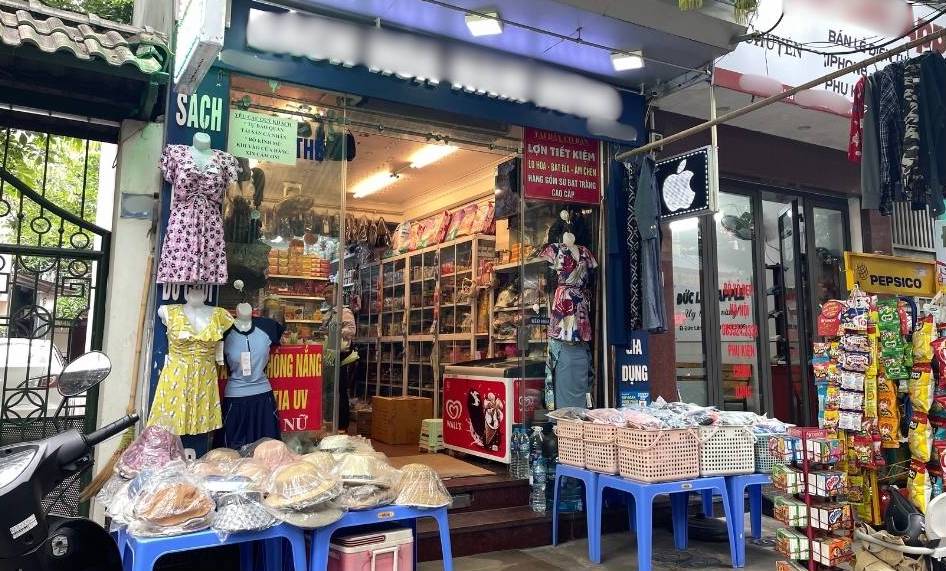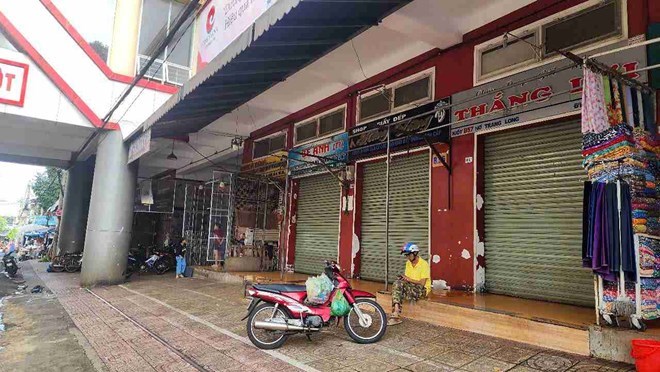Business households close to wait, listen to tax information
Since the beginning of June 2025, at some unit markets and small stores in Hanoi, Ho Chi Minh City, Hai Phong... there has been a situation where many business households have temporarily stopped operating. Some people gave the excuse of changing stalls, some gave the occasion to "go on summer trips", some frankly shared that they were closed to avoid tax evasion and market management checking. According to experts, the real reason comes from the fear and unwillingness to adapt to the new regulations on electronic invoices.
Speaking to reporters, Mr. Nguyen Dang Sinh - Chairman of the Vietnam Association for Anti-Counterfeiting and Brand Protection (VATAP) - confirmed: "During the period when the authorities increased inspection and handling of counterfeit and counterfeit goods, many business locations - from small stores to unit markets - had to temporarily suspend operations. Partly because of concerns about being checked, partly because of weak purchasing power, but it is noteworthy that there is a reservation before the mandatory regulation on the use of electronic invoices from June".
According to current regulations, business households and individuals with a revenue of VND1 billion/year or more must switch to using electronic invoices instead of handwritten or not issuing invoices as before. This has caused many households and individuals doing business to choose to " act immotively", waiting, waiting for more specific information and instructions, instead of immediately adapting.
Mr. Sinh said: Some business households and small enterprises have proactively complied, but there are problems in connecting software and terminal equipment. In some places, goods are stagnant just because they cannot connect electronic invoices with tax authorities".


Need to be a stepping stone for business households to take steps before new changes
Sharing about this issue, Dr. Chau Dinh Linh said that the shift from contract tax to declaration is an irreversible process - which is part of the Government's reform strategy. However, it is regrettable that policy communication is not complete, causing many business households - the direct target - to be confused and misunderstand.
"The new policy forces businesses to operate in accordance with market nature. But there needs to be a roadmap, clear encouragement and support, Dr. Linh emphasized. According to him, it is necessary to clearly distinguish between VAT - State revenue, and income tax - calculated on profit, and at the same time, tax should be calculated according to the revenue ratio reasonably, with a roadmap to gradually increase to avoid causing shock.
He also noted that declaration and transparency are not a burden if the policy is stable, unified, communication is clear and creates value for compliance. Market power is now in the hands of consumers. If business households do not accept digital transformation, do not apply electronic invoices, e-wallets, cashless payments... they will be left behind by customers, Mr. Linh warned.

Talking with Lao Dong, Dr. Nguyen Ngoc Tu - Tax expert also proposed that the State should have a policy of tax exemption and reduction in the early stages, combined with support for software, equipment, and accounting services, so that business households do not feel abandoned. At the same time, it is necessary to specify more policies to guide and support business households through decrees and circulars, instead of stopping at the level of resolutions with orientation.
In short, tax transparency is an irresistible trend. However, to keep up with households, the State needs to regulate flexibly, not imposing rigid regulations, so that the target of 2 million households moving to enterprises by 2030 does not become a "marathon without participants".











